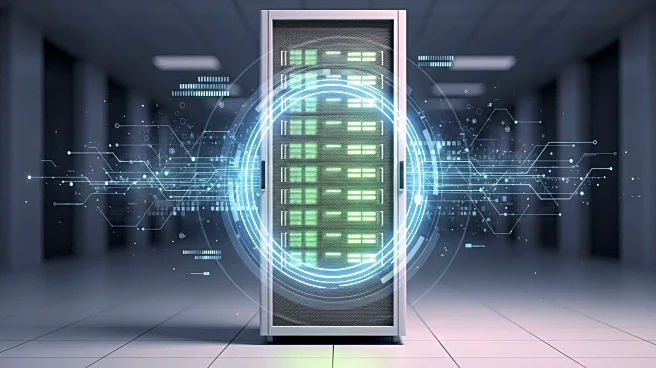What is the story about?
What's Happening?
General Dynamics Information Technology (GDIT), a division of General Dynamics, has been awarded a $1.5 billion contract to modernize the enterprise IT infrastructure of the US Strategic Command (STRATCOM). The contract, which begins in May 2025, includes a one-year base period with six optional years. STRATCOM is responsible for monitoring the strategic deterrence of the United States, including global strike capabilities, nuclear command and control, and electromagnetic spectrum operations. The modernization effort will involve the use of digital engineering, artificial intelligence, and cyber capabilities to enhance strategic deterrence and nuclear command systems. GDIT plans to transition STRATCOM to a hybrid cloud environment, providing greater flexibility and scalability, while implementing advanced cybersecurity measures to protect against evolving threats.
Why It's Important?
The modernization of STRATCOM's IT infrastructure is crucial for maintaining national security and strategic deterrence capabilities. By incorporating advanced technologies such as AI and machine learning, decision-makers will be better equipped to respond swiftly to threats. The transition to a hybrid cloud environment will enhance the flexibility and scalability of STRATCOM's operations, ensuring that the command can adapt to changing demands. This contract also reflects GDIT's broader strategy to expand its mission-critical IT services across various combatant commands, reinforcing its role as a key player in national defense. The initiative underscores the importance of robust cybersecurity measures in safeguarding critical military networks against cyber threats.
What's Next?
As GDIT begins the implementation of this contract, stakeholders will likely monitor the progress closely to ensure that the modernization efforts meet the strategic needs of STRATCOM. The successful deployment of these technologies could set a precedent for future IT modernization projects within the Department of Defense. Additionally, the integration of AI and machine learning into military operations may prompt discussions on the ethical and operational implications of such technologies in defense strategies. The focus on cybersecurity will also remain a priority, as evolving threats continue to challenge the security of military networks.
Beyond the Headlines
The contract highlights the growing reliance on digital and cyber capabilities in modern military operations. As STRATCOM's IT infrastructure is upgraded, there may be broader implications for how the military approaches technology integration and cybersecurity. The use of AI and machine learning in decision-making processes could lead to shifts in military strategy and operations, raising questions about the balance between human oversight and automated systems. Furthermore, the emphasis on cybersecurity reflects a recognition of the increasing sophistication of cyber threats and the need for robust defenses to protect national security interests.















